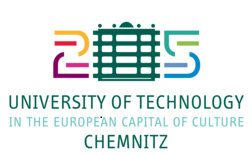Sesotho Language Acquisition by Faculty of Education Students in South Africa: A Systematic Review
DOI:
https://doi.org/10.71514/jssal/2025.176Keywords:
Conversational language, challenges, functional language, native language, official languagesAbstract
Higher education institutions are increasingly interested in teaching African languages, specifically as third, fourth, or additional languages. Learning Sesotho poses a unique challenge to non-native speakers if introduced at the exit phase. This systematic review aims to identify the challenges students face while learning Sesotho at the exit stages of their educational degrees and explore how their proficiency in Sesotho can benefit professional teaching practices in different regions of South Africa. Within the scope of this objective, a comprehensive literature search was conducted in "Google Scholar, Scopus, and JSTOR" As of 22 September 2024, a total of 73 articles were identified from the databases. During the initial screening of titles and abstracts, 11 duplicates were excluded. Of the remaining 62 articles, 40 were excluded based on relevance, and 22 were downloaded to the digital workspace. Prioritising African languages in education, particularly by studying additional indigenous languages, can result in significant advantages. Therefore, the study examines the pros and cons of acquiring conversational Sesotho proficiency, particularly in a university setting where IsiZulu may be the predominant language. This exploration highlights the broader implications and benefits of introducing linguistic diversity in educational environments in exit phases. In order to capture nuanced perspectives and experiences, this paper adopts a systematic literature review approach to gain a comprehensive knowledge of the challenges, benefits, and implications of learning Sesotho as an additional language in higher education contexts. The findings of this research highlight that student-teachers lack an understanding of the need to learn an additional language, and therefore, they are not motivated to acquire this knowledge.
Downloads
References
Ajani, O. A., & Khoalenyane, N. B. (2023). Using WhatsApp as a tool of learning: A systemic literature review of prospects and challenges. International Journal of Innovative Technologies in Social Science, 3(39). https://doi.org /10.31435/ rsglobal_ijitss /300 92023/8025
Alexander, N. (2003). Language education policy, national and sub-national identities in South Africa. Strasbourg: Council of Europe, 17-18.
Bock, Z., & Stroud, C. (2021). Language and decoloniality in higher education: Reclaiming voices from the South. Bloomsbury Publishing.
Cekiso, M., Meyiwa, T., & Mashige, M. (2019). Foundation phase teachers’ experiences with instruction in the mother tongue in the Eastern Cape. South African Journal of Childhood Education, 9(1), 1–10. a658. https://doi.org/10.4102/sajce.v9i1.658
Cele, N. (2021). Understanding language policy as a tool for access and social inclusion in South African Higher Education: a critical policy analysis perspective. South African Journal of Higher Education, 35(6), 25-46.
Coetzee-de Vos, G. (2019). Reflections on language transformation at Nelson Mandela University. Language Matters, 50(2), 1-19. https://doi.org/10.1080/10228195 .2018.1524923
Crawford, J. (2004). Language choices in the foreign language classroom: Target language or the learners' first language? Relc Journal, 35(1), 5–20.
Cross, R., D’warte, J., & Slaughter, Y. (2022). Plurilingualism and language and literacy
education. The Australian journal of language and literacy, 45(3), 341-357.
Department of Arts and Culture. (2002). National Language Policy Framework. Available from http://www.info.gov.za/view/DownloadFileAction?id=70251 [Accessed: 18 May 2024].
Department of Arts and Culture. (2002). Language Policy for Higher Education. Available from http://www.dhet.gov.za/HED%20Policies/Language%20Policy% 20for%20Higher %20Education.pdf, [Accessed: 08 June 2024].
Deutschmann, M., & Zelime, J. (2022). Researching Kreol Seselwa and its role in education in the pursuit of educational equity in the Seychelles. In Erling, E.J., Clegg, J., Rubagumya, C.M., & Reilly, C. (Eds.), Multilingual learning and language supportive pedagogies in Sub-Saharan Africa (pp. 61-78). Routledge.
Foulkes, P., & Docherty, G. (2006). The social life of phonetics and phonology. Journal of phonetics, 34(4), 409–438.
Garritty, C., Gartlehner, G., Nussbaumer-Streit, B., King, V. J., Hamel, C., Kamel, C., ... & Stevens, A. (2021). Cochrane Rapid Reviews Methods Group offers evidence-informed guidance to conduct rapid reviews. Journal of clinical epidemiology, 130, 13-22.
Hikwa, L. (2012). Indigenous languages as preservers of indigenous knowledge in Zimbabwe.
Hlatshwayo, A., & Siziba, L. P. (2013). University students’ perceptions of multilingual education: A case study of the North-West University Mafikeng campus. Stellenbosch Papers in Linguistics Plus, 42, 81–92. https://doi.org/10.5842/42-0-150
Kamwangamalu, N. M. (2001). The language planning situation in South Africa. Current Issues in Language Planning, 2(4), 361-445.
Kamwendo, G., Hlongwa, N., & Mkhize, N. (2014). On medium of instruction and African scholarship: The case of Isizulu at the University of KwaZulu-Natal in South Africa. Current Issues in Language Planning, 15(1), 75–89. https://doi.org/10.1080/14664208. 2013.858014
Khoalenyane, N., & Ajani, O. A. (2023). Exploring student perceptions of engagement in online learning within higher education institutions: A comprehensive systematic review. International Journal of Social Science Research and Review, 6(11), 62-81.
Kubota, R. (2016). The multi/plural turn, postcolonial theory, and neoliberal multiculturalism:Complicities and implications for applied linguistics. Applied linguistics, 37(4), 474-494.
Labov, W. (2011). Principles of linguistic change, volume 3: Cognitive and cultural factors (Vol. 3). John Wiley & Sons.
Lewis, G., Jones, B., & Baker, C. (2012). Translanguaging: Developing its conceptualisation and contextualisation. Educational Research and Evaluation, 18(7), 1–16. https://doi.org /10.1080/13803611.2012.718490
Madiba, M. (2013). Multilingual education in South African universities: Policies, pedagogy and practicality. Linguistics and Education, 24(4), 385-395.
Maki, P. L. (2023). Assessing for learning: Building a sustainable commitment across the institution. Routledge. https://doi.org/10.4324/9781003443056
Manyike, T. V., & Lemmer, E. (2014). Research in language education in South Africa: Problems & prospects. Mediterranean Journal of Social Sciences, 5(8), 251-258. https://doi.org/10.5901/mjss.2014.v5n8p251
Marshall, S., & Moore, D. (2018). Plurilingualism amid the panoply of lingualisms: Addressing critiques and misconceptions in education. International Journal of Multilingualism, 15(1), 19-34.
Maseko, B., & Siziba, L. P. (2023). Continuities or change?: A synchronic and diachronic analysis of documented language policies of selected universities in South Africa. Journal of Language Teaching and Research, 14(2), 304-313. https://doi.org/ 10.17507/ jltr. 1402.05
Mbirimi-Hungwe, V. (2023). Promoting multilingualism through translanguaging in South African classrooms. Journal for Language Teaching, 57(1), 1-20. https://doi.org/ 10.56285/jltVol57iss1a5273
Mkhize, D., & Balfour, R. (2017). Language rights in education in South Africa. South African
Journal of Higher Education, 31(6), 133-150.
Msila, V. (2021). Students’ challenges and opportunities in learning isiZulu at a South
African higher education institution. The International Journal of Interdisciplinary Cultural Studies, 16(1), 1–21.
Muthivhi, A. E. (2011). The cultural context of development: Language as a means for thinking and problem-solving. South African Journal of Childhood Education, 1(1), 16. https://doi.org/10.4102/sajce.v1i1.274
Nahidh, M., Al-Khawaja, N. F. K., Jasim, H. M., Cervino, G., Cicciù, M., & Minervini, G. (2023). The role of social media in communication and learning at the time of COVID-19 lockdown: An online survey. Dent J (Basel), 11(2), 48. https://doi.org/10.3390/dj11020048
Ngidi, S. A., & Mncwango, E. M. (2022). University students' perspectives on an English-only language policy in higher education. Journal for Transdisciplinary Research in Southern Africa, 18(1), 1–5. https://dx.doi.org/10.4102/td.v18i1.1189
Ngũgĩ wa Thiongʾo. (1986). Decolonising the mind: The politics of language in African literature. London: Portsmouth, N.H: J. Currey; Heinemann. https://worldpece.org /content/ngũgĩ-wa-thiongʾo-1986-decolonising-mind-politics-language-african-literature-london
Nkosi, Z. P. (2020). Non-native isiZulu pre-service teachers’ views and experiences on learning isiZulu as a second language at a South African KwaZulu-Natal university. Journal of Asian and African Studies, 55(1), 95–110.
Page MJ, McKenzie JE, Bossuyt PM, Boutron I, Hoffmann T.C, Mulrow C.D, et al. (2021). The PRISMA 2020 statement: an updated guideline for reporting systematic reviews. BMJ 2021;372:n71. doi: 10.1136/bmj.n71
Pati, D., & Lorusso, L. N. (2018). How to write a systematic review of the literature. HERD: Health Environments Research & Design Journal, 11(1), 15-30.
Puig-Mayenco, E., González Alonso, J., & Rothman, J. (2020). A systematic review of transfer studies in third language acquisition. Second Language Research, 36(1), 31-64. https://doi.org/10.1177/0267658318809147
Ramothwala, T., Mandende, I. P., & Cekiso, M. (2022). Translanguaging in a Northern Sotho
classroom: A case study of Khelobedu-speaking learners and their teachers in the Foundation Phase in Mopani District. Literator-Journal of Literary Criticism, Comparative Linguistics and Literary Studies, 43(1), 1856.
Ratten, V. (2023). The post COVID-19 pandemic era: Changes in teaching and learning methods for management educators. The International Journal of Management Education, 21(2), 100777. https://doi.org/10.1016/j.ijme.2023.100777
Riady, Y., Alqahtany, T. M., Habibi, A., Sofyan, S., & Albelbisi, N. A. (2022). Factors affecting teachers’ social media use during COVID-19. Cogent Social Sciences, 8(1). https://doi.org/10.1080/23311886.2022.2115658
Ryan, R.M., Deci, E.L. (2022). Self-Determination Theory. In: Maggino, F. (eds) Encyclopedia of Quality of Life and Well-Being Research. Springer, Cham. https://doi.org/10.1007/978-3-319-69909-7_2630-2
Sobaih, A. E. E., Palla, I. A., & Baquee, A. (2022). Social media use in e-learning amid COVID-19 pandemic: Indian students' perspective. Int J Environ Res Public Health, 19(9), 5380. https://doi.org/10.3390/ijerph19095380
Downloads
Published
How to Cite
Issue
Section
License
Copyright (c) 2025 Nthabiseng B. Khoalenyane, Patrick Alpheous Nyathi, Precious Moyo

This work is licensed under a Creative Commons Attribution-NonCommercial 4.0 International License.
The work is made available under the terms of the Public Offer and the Creative Commons Attribution 4.0 International License (CC BY 4.0). This license allows anyone to reproduce, distribute, and adapt the material in any medium or format, including for commercial purposes, provided that proper credit is given to the creator(s) and the original source.












